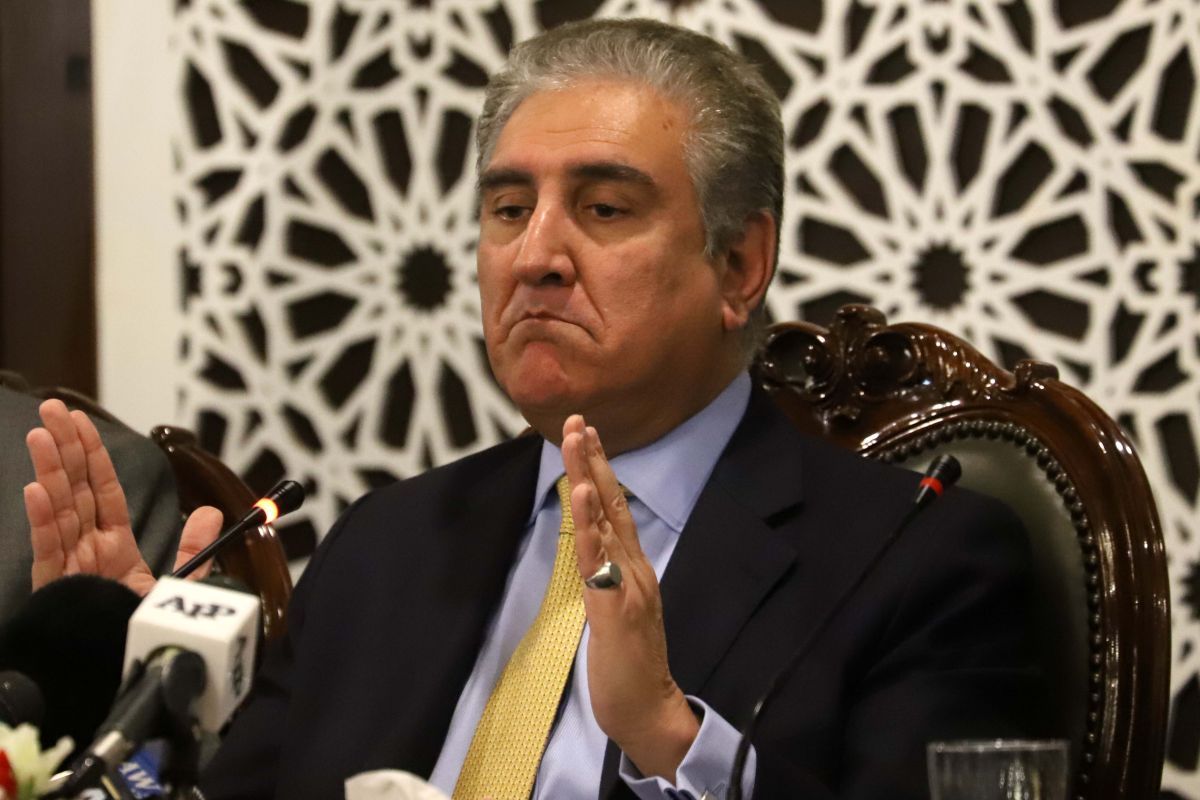Pakistan is yet to accept the abrogation of Article 370 and Article 35A by the India government as its foreign minister Shah Mahmood Qureshi has written a letter to the United Nations Security Council (UNSC), highlighting Islamabad’s claims of what it calls “illegal and unilateral measures of August 5 2019 in the Illegally Occupied Jammu and Kashmir (IIOJK)”.
This comes as Pakistan is marking the first anniversary of the abrogation of Articles 370 and 35A, which granted special status to the erstwhile state of Jammu and Kashmir, on August 5 with protests, rallies and other activities.
In the letter addressed to the President of UN Security Council, Qureshi has highlighted the ongoing tense situation in the Kashmir Valley and the “violations of human rights committed by the Indian forces”, an IANS report said.
“Foreign Minister Shah Mahmood Qureshi has one again written to the President of UN Security Council sharing additional information on India’s continuing massive violations of human rights in occupied Jammu and Kashmir, its attempt to change demography and its escalating ceasefire violations and rhetoric against Pakistan which together pose a threat to regional and international peace and security,” read the statement issued by the Pakistan Foreign Office.
Terming the year-long lockdown and curfew imposed by the Narendra Modi-led government in Jammu and Kashmir as “military siege”, Qureshi maintained that with “internet and communication blackout, imprisoned Kashmiri political leaders and abducted Kashmiri youth, India is seeking to camouflage the ongoing systematic torture, extra-judicial killings and imposition of collective punishment on Kashmiris”.
“These atrocities epitomise India’s brutality in suppressing Kashmiri’s resistance against Indian occupation for over seven decades,” read the letter.
Along with the letter, Pakistan has also circulated two papers as official document for the Security Council: 1) On the legal aspects of the Jammu and Kashmir dispute; 2) On India’s violations of human rights in IIOJK.
As per the press release of the Foreign Office, the legal document “apprises the Council members and the world community of the legitimacy of the Kashmiris’ demand of self-determination”.
The second document details India’s violations of human rights which “will be a permanent and damning testimony of India’s long record of oppression and serious crimes against the Kashmiri people”.
Qureshi has also highlighted the ongoing ceasefire violations by India along the working boundary and the Line of Control (LoC), stating that “India’s belligerent posture towards Pakistan pose a threat to peace and security”.
Qureshi has “urged the Council to strengthen the UN Military Observers Group in India and Pakistan (UNMOGIP) to enable it to report fully and accurately on the gravity of the security environment in occupied Jammu and Kashmir”.
Pakistan has also reminded the Security Council of its responsibility towards maintenance of international peace and security.
“I urge the Council to meet and consider the consequences of India’s military siege in the occupied Jammu and Kashmir and the serious threats that India’s aggressive posture pose to the peace and security of South Asia,” Qureshi said.
This is second letter by Pakistan to the UNSC addressing the issue.
Tensions between India and Pakistan spiked after New Delhi abrogated provisions of Article 370 of the Constitution to withdraw Jammu and Kashmir’s special status and bifurcated the state into two Union Territories on August 5, 2019.
Soon after the scrapping of Article 370, Pakistan had written a formal letter to the UNSC president calling for an emergency meeting of the UNSC to discuss India’s move to revoke the special status to Jammu and Kashmir.
The UNSC declined to hold a formal session on Kashmir with Pakistan’s participation. Instead, it scheduled a closed-door consultation at the request of China.
However, in a major diplomatic victory for India, the United Nations Security Council acknowledged India’s measures to bring normalcy and development to Kashmir and wanted all countries to follow suit.
India has categorically told the international community that the scrapping of Article 370 to revoke the special status of Jammu and Kashmir was an internal matter and also advised Pakistan to accept the reality.
Meanwhile, Pakistan is observing the day as the “Day of Exploitation” or “Youm-e-Istehsal”.
The Pakistan government has also changed the name of its main Kashmir Highway in the capital Islamabad to Srinagar Highway in solidarity with the Kashmiri people.











